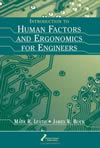2/16/2011· Economics
Measuring The Loss Of Enjoyment Of Life In Personal Injury Cases In Washington - Hedonic Damages
By: Stan V. Smith
In most courts, the value of a human being is not recognized. According to the laws of many states, your life isn't worth a "plugged nickel" if you no longer work.
















